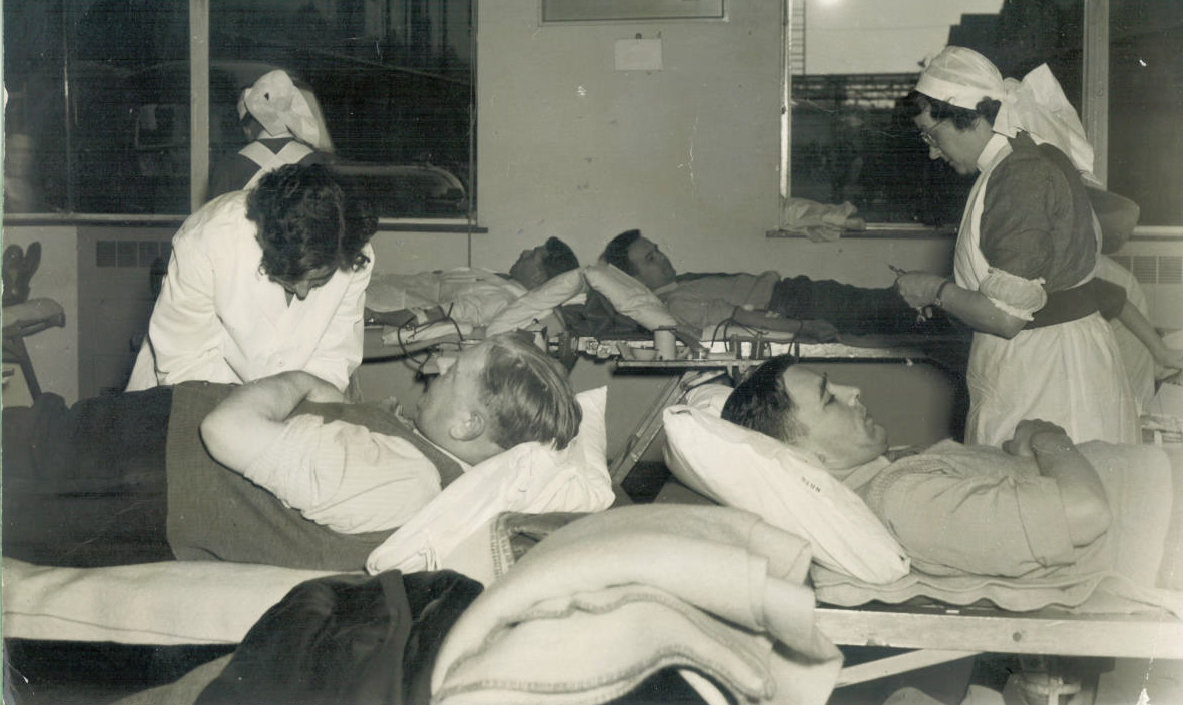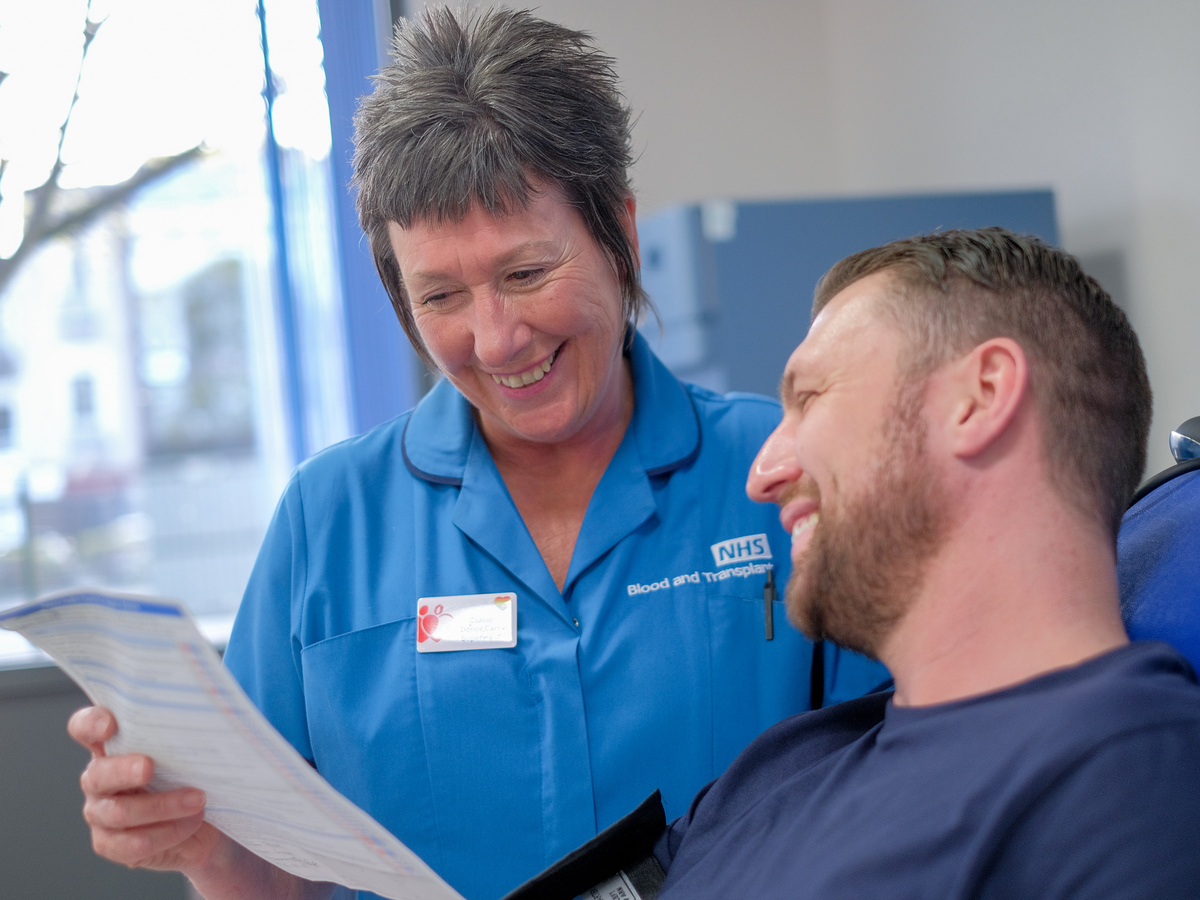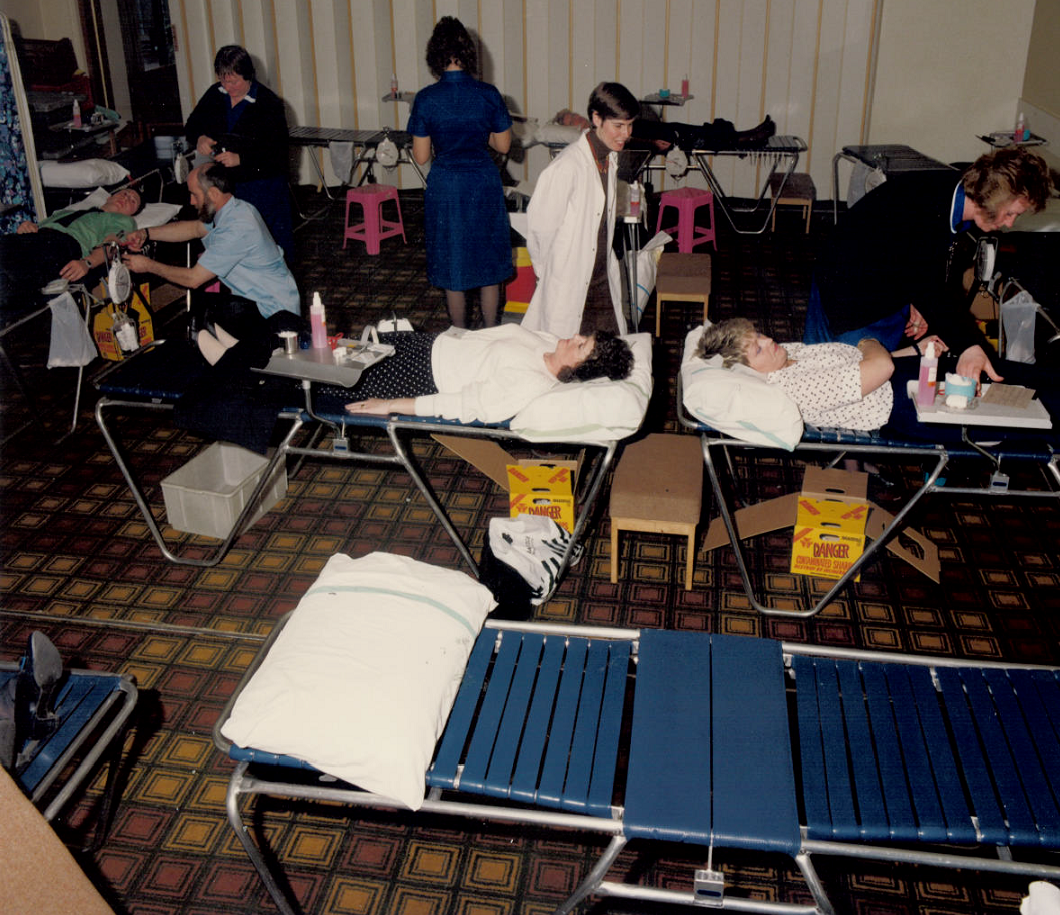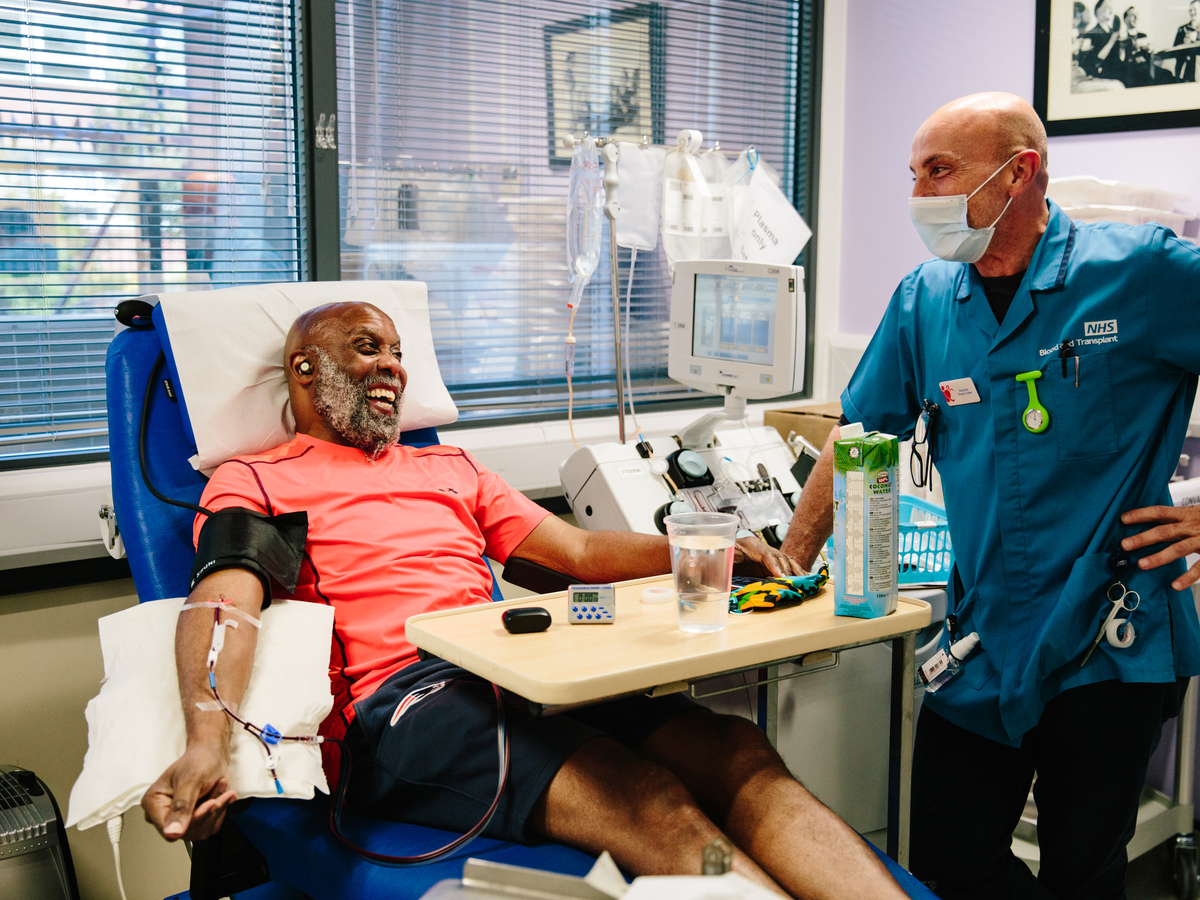75th anniversary of NHS blood donation
Seventy-five years ago, on the 26th September 1946, the Ministry of Health took control of Britain’s blood banks, launching the National Blood Transfusion Service.
Since that day, the service has allowed for countless lives to be saved through the generous gift of blood donation.
Although modern blood transfusion has its roots in the First World War, the creation of many of the UK’s first blood banks came after the outbreak of World War II, as a national response to the need to help treat injured civilians and service personnel.

Whilst there have been many changes since, one constant has been the unwavering commitment of blood donors to the cause.
 Carole Hynes, a donor care supervisor with 35 years of experience, has witnessed that devotion first-hand. "One of the things that has always moved me is when a donor says that the reason that they’ve come to give – whether whole blood, platelets or plasma for medicine – is that someone in their family was saved after receiving the blood products that we collect," she said.
Carole Hynes, a donor care supervisor with 35 years of experience, has witnessed that devotion first-hand. "One of the things that has always moved me is when a donor says that the reason that they’ve come to give – whether whole blood, platelets or plasma for medicine – is that someone in their family was saved after receiving the blood products that we collect," she said.
"It’s rewarding to know that every donation not only saves lives but creates the potential to inspire future donors.
(Picture: Carole Hynes with platelet donor Peter Lock, 2019)
"In that way we are not only responding to the needs of patients and the NHS today, but also ensuring we are there for everyone for the future."
The service’s most recent major change came in 2005, when it merged with UK Transplant to form NHS Blood and Transplant. As an organisation, NHS Blood and Transplant has come far, but few things have been as testing as the COVID-19 pandemic.

Pandemic test
The COVID-19 pandemic has tested the whole of the NHS, changing the way it works and delivers care to the nation, and NHS Blood and Transplant is no exception.
Despite considerable challenges, safe and reliable levels of blood stocks have been maintained throughout the pandemic. We have also collected thousands of blood samples to help better understand the rates of exposure to COVID-19 at different times and collected convalescent plasma donations, supporting national research efforts.
Of course, none of this work would be possible without our donors, who have been saving and improving lives right alongside us for 75 years now. In fact, over 800,000 have been regularly donating, despite the ongoing pandemic. Countless lives have been improved, thanks to each and every one of our donors.
Flagship service
Therapeutic Apheresis is one of our flagship services, and the only one that deals with patients directly. We treat approximately 1,600 adults and children every year from eight dedicated therapeutic units across the country. These specialist services remove harmful, disease-forming proteins, chemicals, or cells from patients’ blood.
Treatments include plasma exchange for neurology, renal and haematology patients; automated red cell exchange in support of patients with sickle cell disorder; and stem cell retrieval for bone marrow transplantation.
Our strategic partnerships have also helped us make landmark changes to the collection of blood products. These include significant moves which recognise NHS Blood and Transplant’s expertise and rigour in providing one of the safest blood supplies in the world.
In May 2021, the FAIR (For the Assessment of Individualised Risk) steering group, led by NHS Blood and Transplant and including other UK blood services and a range of stakeholders, including LGBT groups, made recommendations in line with scientific evidence, which have changed the criteria around who can give blood. This has made the donation process a more positive and inclusive experience for all, enabling more men who have sex with men to donate blood, platelets and plasma.
In addition, the Government, following expert scientific advice, decided in February that plasma from UK donors could again be used for immunoglobulin medicines, the first time in 20 years. NHS Blood and Transplant has since taken plasma donations for immunoglobulins – vital medicines, used to treat people with weak and malfunctioning immune systems – and also started recovering plasma from whole blood.
More Black donors needed
The future still, however, presents many challenges, including meeting the demands of a patient population that is growing more ethnically diverse. The treatment of blood conditions, such as sickle cell disorder and thalassaemia, is heavily reliant on blood that is closely and ethnically matched, but many ethnic backgrounds are underrepresented amongst registered blood donors.
Fortunately, large numbers of people are joining the cause.
In the last year, the number of Black blood donors with the Ro subtype, used to treat people with sickle cell disorder, went up by almost 10 per cent.
At the same time, though, demand continues to increase by 15 per cent each year and donated blood is needed to support the 15,000 people in the UK living with the condition. That’s why more blood donors from Black ethnic backgrounds remains an urgent priority.

Colin Anderson has been at NHS Blood and Transplant for almost 40 years and is currently working as community and engagement lead. He is also the talented choir master behind the B Positive Choir, which was started to inspire more people of Black heritage to register to donate blood.
(Picture: Colin donating plasma)
He says, "It’s so important that NHS Blood and Transplant engage our African and Caribbean communities to register and donate blood regularly, particularly to help treat UK sickle cell patients. People with this genetic disorder – the majority of whom are from African and Caribbean descent – require regular transfusions.
"That means they need blood from donors with a similar ethnic background to give them the opportunity to live a more normal life.
"NHS Blood and Transplant currently needs to quadruple the number of Black blood donors to meet rising demands."
Looking forwards
Finally, our 75th anniversary is also an opportunity to look to the future.
As part of the RESTORE Clinical trial being led by NHS Blood and Transplant, our researchers conducted the first in-human clinical trial of red blood cells grown in the laboratory from adult donor blood stem cells. The trial marks a significant step towards using manufactured blood to improve treatment for patients with rare blood types. We hope that this will provide us with a novel transfusion product for these patients in the future, some of whom require regular transfusions throughout life, such as for thalassemia or sickle cell disorder.
As we look ahead to the next 75 years, one thing is clear: we will need the support of each one of our staff, donors, partners, and supporters to achieve our goal of continuing to improve and save lives.
You can learn more about the history of blood donation, transfusion and transplantation through the decades, here.
